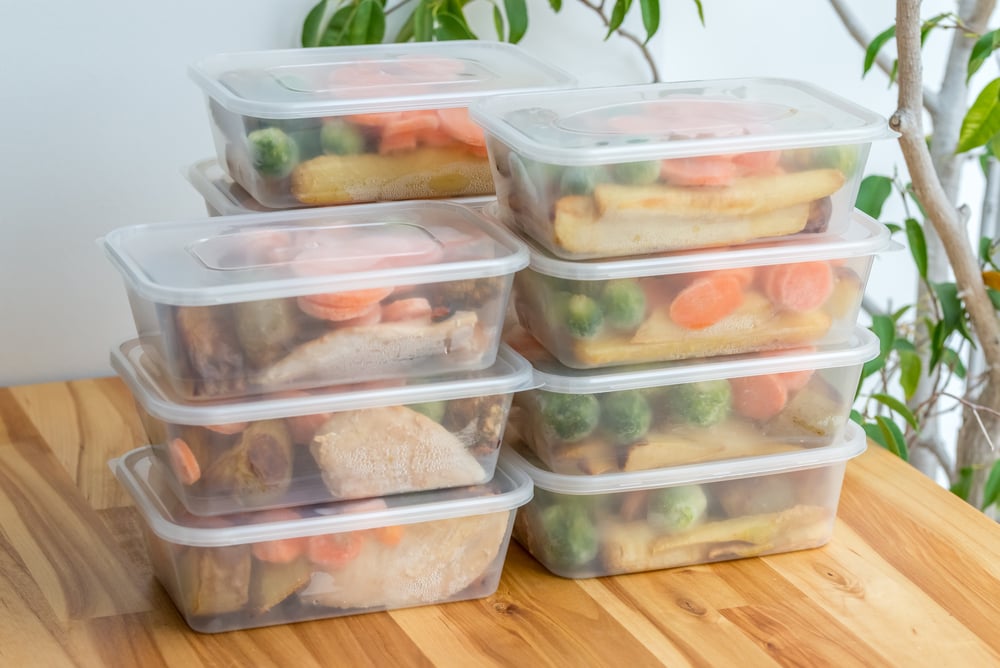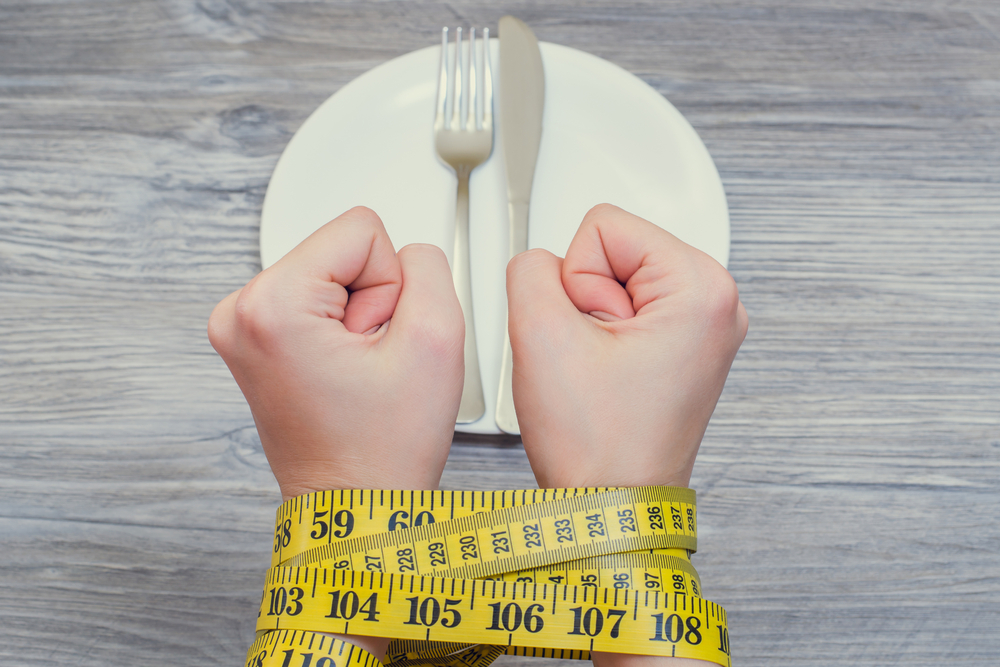
FREE SHIPPING TO U.S. AND PUERTO RICO FOR ALL ORDERS $100 AND OVER!
We are unable to accept returns on any products or test kits. All sales are final.
By visiting our site, you agree to our privacy policy regarding cookies, tracking statistics, etc. Read more
FREE SHIPPING TO U.S. AND PUERTO RICO FOR ALL ORDERS $100 AND OVER!
We are unable to accept returns on any products or test kits. All sales are final.
FREE SHIPPING TO U.S. AND PUERTO RICO FOR ALL ORDERS $100 AND OVER!
We do not currently ship internationally.

Why is it that so many resolutions and goals, even those designed to improve or save your life, end up being, in the words of Mary Poppins,
“Pie crust promises. Easily made, easily broken?”
Well, beware of overly simplistic, one-size-fits-all answers for this common quandary. Even our list of nine potential barriers to changing your behavior is not all the possibilities that sometimes stand between a person and his/her goal. If you are like most of us mere mortals, more than likely, you’re facing several obstacles at the same time.
These nine strategies will help you pass on the pie more often and keep your commitment to your resolutions more easily.
In This Article
Before you rush out and sign up for 10 years of psychotherapy to unravel unconscious barriers blocking your success, make sure you do not have a neurotransmitter or hormonal imbalance.
Even though I am a big fan of therapy and still do quite a bit in my practice, it bears repeating that having a neurotransmitter imbalance can be a cause or contributing factor of your lack of resolve.
What would such imbalances look like, how should you go about testing for them, and what in the tarnation could you do about them? Glad you asked.
Neurotransmitter imbalances can impede weight loss and can result in feeling fatigued or anxious and experiencing brain fog or insomnia, for starters. None of these are helpful when trying to make transformative changes in your life.
We offer a free online Neurotransmitter Imbalance Questionnaire designed to determine if you may have a depletion in your neurotransmitter levels and tips for correcting them. This is only a guide, but is a good place to start.
You can also read more in-depth about Neurotransmitter Testing and What Can It Do For You in our blog.
For a more accurate way of determining an imbalance, neurotransmitter lab tests are widely available. Some of our test kits are simple urine and/or saliva collection kits you can do at home, but the blood test strips require a trip to a local laboratory office — doctor’s order is provided and you receive the results.
If a hormonal, nutritional or neurotransmitter imbalance is keeping the weight on your frame or hampering your progress, there are usually natural remedies such as vitamins, minerals, amino acids, herbs, or homeopathy that can help restore proper balance.
When there are no underlying health issues, there are two science-backed formulas that can help you in your weight loss journey, PhysIQ Fat Burn and TrueScience® Liquid Collagen.
PhysIQ Fat Burn helps activate your body’s natural ability to convert fat tissue into a form that helps burn more calories, which can lead to an overall fat reduction, especially in the problematic mid-section. The proprietary formula combines green coffee bean extract, B vitamins, and Sinetrol® — a blend of Mediterranean citrus fruits and guarana clinically shown to target the trunk area and support lean body composition through continuous fat burning.
TrueScience® Liquid Collagen is daily boost of collagen and exclusive botanicals activates your body’s collagen production, replenishes your depleting collagen levels, and maintains those levels by reducing enzymes that break down collagen. It also helps protect against the damaging effects of oxidative stress, caused by free radicals. The proprietary ingredients in this delicious blend have been clinically shown to deliver visible support to skin health and hydration in 8 weeks or less.
This natural supplement duo can help you take on your resolutions to be the best you in the coming year, especially when paired with the rest of our resolution-keeping lifestyle tips on diet, exercise, sleep, and mindset.
Insufficient sleep has long been linked to numerous health problems, including excessive weight gain. Sleep-deprived people tend to report increased hunger, particularly later in the day. It also increases cravings for calorie-rich foods like processed sugars and junk food. Putting the right nutrients into your body makes a world of difference in supporting deep, refreshing, and restorative sleep.
A good rule of thumb is to try and get seven to nine hours of sleep each night. Simply increasing the amount of sleep you get by even one hour each night can help you lose up to 14 pounds over the course of a single year. Do things later in the evening designed to help your body cycle down and prepare for sleep. Our 13 Tips for A Great Night’s Sleep can easily get you started.
For those of you whose lifestyle already includes exercise, you understand the paradox that it’s easy to stop exercising but truly challenging to begin again!
Exercise is one of the easiest habits to break during the holidays and one of the top New Year’s resolutions people set. However, many believe exercising means hitting the gym for a fast and furious workout. This can be true, but it doesn’t have to be the case when you’re just beginning.
Exercise does not have to be strenuous, just consistent. Low-impact exercise can be as easy as parking in the spot farthest from the store and taking stairs instead of elevators. If you have been inactive, start small and slowly increase your routine, working your way up to more physically demanding activities.
For those who already have a regular routine, spend five extra minutes on the treadmill or jog a quarter of a mile more each day. Incorporate strength training into your routine; even doing push-ups, pull-ups, squats, and lunges will burn calories. Or diversify your workout by taking a class that stretches your flexibility, joining a team sport, or adding outdoor activities.
You might be surprised, but small changes are sustainable changes that can really help you create a new, healthier normal for yourself.
It can be difficult to keep weight loss and lifestyle resolutions if you don’t have health-minded friends or family members. Support is the key to success.
Joining a class that meets regularly can provide a framework of accountability for you to work within — knowing that it meets at the same time each week, you’ll be able to plan time with family or friends around your class time. Once you start showing up to the class regularly, you will not only become a familiar face, but you’ll begin to notice who else is making a similar commitment to their health. And therein lies a doorway to opening a connection with new friends. Friends who share a similar goal or interest that can help keep you motivated and feeling supported

If a weekly class doesn’t fit the current budget, you can still find or create your supportive tribe of like-minded peers. Most communities have groups that meet up for nature walks, pick-up games, and even healthy cooking. Social media can be an easy place to find what might already be happening in your neighborhood, but if you don’t see what you’re looking for, why not reach out to church members, parents at your kids’ school, or people from work to see if anyone else wants to take a walk at lunch or have a weekly recipe swap and tasting.
Having space where you can encourage others, ask questions, and share progress (both wins and setbacks) makes you feel less alone. If you don’t find your tribe immediately, you can start by sharing with friends on your personal media profiles. You might be surprised and find a few people you know are working toward similar goals.
We all know eating well goes hand-in-hand with weight loss and keeping the mind and body in balance. Many starts to hit roadblocks when they focus heavily on willpower, relying on sheer motivation to propel them to their goal instead of putting simple, effective strategies in place.
Meal prep, portion control, and tactical shopping trips are amazingly simple behaviors that have a positive cumulative effect.
Meal Prep and Planning: Research shows that deciding what you’ll eat well ahead of the point you’re ravenous can help you make healthier choices aligned with your weight-loss goals. Investing a few hours to plan a menu for the week can prevent you from backsliding and ordering out after a long day when you’re prone to being too tired to decide what you’d rather eat.

Bonus: If you need help planning a healthy menu, look for cookbooks at your local library. They often have a large selection of books for various dietary choices, and in addition to providing recipes, many cookbooks even offer some suggested weekly menus.
If you have time to make things even more automated, you can prep ingredients or entire meals on the weekend so that you can grab and go your own healthier, goal-oriented meal options during the week. Make-ahead tips are another feature many cookbooks offer, and there are plenty of resources online now too.
Portion control doesn’t require much thought if you make one simple change. Reduce the size of your plate and eating utensils. You can’t eat what you can’t fit on your plate in one sitting. A smaller-sized plate is a preset that forces you to stop and choose whether to eat more. Likewise, using the smaller fork and spoon provides a preset that forces you to take smaller bites, helping you to be mindful of how much and how quickly you are eating.
Tactical shopping trips are also something we all know about, but humans are prone to fail at doing well. It’s simple. Don’t go food shopping when you are hungry!
Human hunger and appetite are regulated by a phenomenally complicated set of overlapping feedback networks involving a long list of hormones, psychological factors, and others way beyond the scope of this article. We are going to be prone to making impulse purchases for unwanted snacks or processed foods when we shop on an empty stomach.
We are all human, and we all have our weaknesses. When we can identify patterns in our behaviors, attitudes, and reactions, we can look for strategies to help us cope with situations that break down our resolve.
Try making a list of situations you feel you could have reacted better to and how you would rather respond in the future. Let’s say, for example, when I talk to my dad, my self-esteem usually drops, and afterward, I usually go to the drive-through. Instead of driving to get fast food, I could call a friend or go to the gym — two things that boost my mood and self-esteem.

It’s essential to recognize what can sabotage your efforts and take steps to avoid them when possible. In addition to our personal triggers, there are five barriers to change that people, in general, can struggle with: denial, rationalization, blame, discomfort, and lack of skill.
When you recognize a behavior counteracting your ability to achieve your weight loss goals or other new year resolutions, practice replacing the barrier with a bridge, instead, reflect on one of these: Awareness (I understand why), Desire (I have decided to), Knowledge (I know how to), Ability (I am able to) and Reinforcement (I will continue to).
These can be really foundational steps in shifting your mindset. And, when it comes to keeping your resolutions, mindset is often hard to maintain after the initial motivating high of setting new goals wears off.
Don’t stress if you start falling off track. If you’re unable to meet smaller, daily goals once in a while, that’s okay. If you oversleep one day and miss a workout, don’t beat yourself up; just be grateful for the extra rest. Things are sometimes going to disrupt daily routines, but as soon as things settle, make a point of working on those new habits. As long as you keep returning to them, they will eventually take hold and become more integrated as your norm. For new habits to stick, it takes a little while to be patient with yourself!
And be careful of falling victim to the detrimental “all or nothing” mindset. Feeling that “anything less than perfection is pointless” can hold you back. Instead, stay focused on your bigger picture. Broaden your lens to see the overall benefits of any amount of progress instead of minute perfection.
Sometimes when we set out to make significant transformational changes, like weight loss, we hone in on all the things that aren’t working well for us and try to eliminate those. When we start eliminating things, like our favorite comfort foods, it can start to feel overwhelming, like all joy is being sucked out of our lives.
So it is not only important to keep yourself motivated by rewarding yourself when you succeed, even in small ways, but to celebrate in ways that support the healthier choices you want for yourself.
Instead of rewarding yourself with food, or even worse, an old comforting snack, create new healthy rewards to look forward to, such as: inviting friends from your support group to try a new bike trail with you, investing in a new pair of gym shoes, buy your own yoga mat, or pamper tired muscles with a massage. The point is to let the reward fit the new lifestyle you are building for yourself.
Hopefully, these strategies will help you pass on the pie more often and keep your commitment to your resolutions more easily.

Dr. David Scheiderer MD, MBA, DFAPA, is the Chief Medical Officer and Director of Education for Integrative Psychiatry, Inc.
An accomplished clinician, educator, and lecturer, Dr. Dave has established himself as a key opinion leader in the fields of both mainstream psychiatry and functional medicine. Dissatisfied with the patient outcomes using only conventional treatments, he began treating his patients by addressing biological imbalances with lifestyle improvements, nutrition and nutraceuticals to get better outcomes. His integrative approach provided much improved results. Dr. Dave is passionate about helping the community he serves by personalizing treatments and educating the public about mental health and healthy aging. He has formulated several of our supplements and sat on the advisory board for many others, ensuring the products we carry are based on science and experience and have the best efficacy rates and highest ingredient quality available.
This site is protected by reCAPTCHA and the Google Privacy Policy and Terms of Service apply.